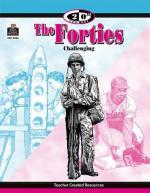|
This section contains 269 words (approx. 1 page at 300 words per page) |

|
Radio proved its importance during World War II (1939–45) with almost immediate coverage of events. Between 1941 and 1945, Americans tuned in to listen to breaking news from Europe, hearing about major battles and the bombing of Pearl Harbor in Hawaii just moments after the actual events. News reporters such as Edward R. Murrow (1908–1965) and William Shirer (1904–1993) offered insightful commentary and straight, hard news. Their example would influence the news anchors on the new media—television, commonly called TV—for decades. Radio's golden age ended with the war.
The 1940s were the true beginning of the TV era. Although sets had been available as early as the late 1930s, the widespread distribution and sale of TV sets did not really take off until after the war. Broadcasting stations neglected many of their radio stations and poured money into TV after the war. Soon many radio dramas, variety...
|
This section contains 269 words (approx. 1 page at 300 words per page) |

|



